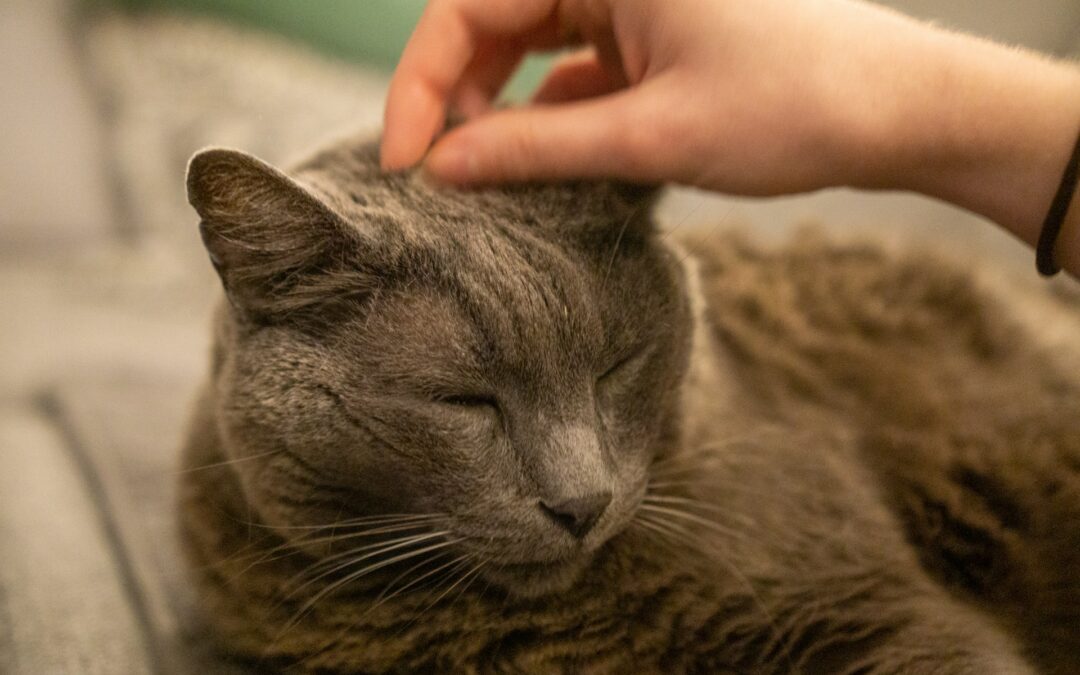Just like our human friends and family, our furry friends will also age. Our cats develop different needs as they age, and they also go through physical and behavioral changes. Understanding the signs of feline aging can help you take the right steps to keep your cat feeling happy and healthy for the rest of their life. If your cat is getting older, here’s what to expect.
How Old Is a Senior Cat?
Depending on their breed, medical history, and several other factors, the average lifespan for cats is around fifteen to twenty years. While some cats may start slowing down at around age seven, most won’t become seniors until much later. Thanks to improvements in nutrition, a push for cats to live indoors, and modern veterinary care, the lifespan of cats has extended. This means our cats are not considered seniors until they are at least ten years old.
Physical Changes in Senior Cats
When your cat starts getting older, you may notice a few changes in their appearance, how they take care of themselves, and their normal activities. Old age also means your cat has a higher risk for certain medical conditions, such as arthritis or diabetes.
Changes in Appearance
- Fur—Aging can make self-grooming difficult, which can lead to matted and oily fur. Matted fur can be painful, cause wounds on the skin, and lead to infections, so you will need to start brushing your cat every day.
- Nails—An older cat’s nails might become thicker and more difficult to trim, or they might become brittle, leading to breakage and pain. Trim your cat’s nails frequently to prevent problems.
- Eyes—As your cat ages, their vision might start to deteriorate. You might notice your cat’s eyes becoming cloudy, which is often a sign of vision loss.
- Weight—Keeping your cat at a healthy weight may become more difficult as they age. Older cats will often experience either weight gain or weight loss. Changes in weight can be associated with a number of medical problems, and should be addressed by your veterinarian.
Changes in Activity
- Aging can be difficult on your cat’s joints, making them lose their ability to do things like jump and climb, enter their litter box, or even access their food and water bowls.
- Your cat might also start sleeping more. While a gradual increase in sleep is typical, contact your veterinarian if they are sleeping for over 20 hours a day, or if they are particularly difficult to wake.
Health Risks for Senior Cats
As a senior, your cat has a higher risk of medical problems. It is important to keep a closer eye on a senior cat’s health, which might mean more frequent exams from your veterinarian.
Common medical problems for senior cats include:
- Kidney disease
- Dehydration
- Diabetes
- Arthritis
- Dental diseases
- Heatstroke
Behavioral Changes in Senior Cats
Some cats may start showing signs of cognitive changes as they age. If your cat begins to seem confused or aggressive, make an appointment with your veterinarian.
There are several signs of feline senility, such as:
- Litter box avoidance
- Human avoidance
- Aimless wandering
- Excessive meowing
- Disorientation (falling, missing landings)
Certain cat behaviors might also be signs of pain. Bring your cat to the vet if you notice:
- Aggression toward humans, especially when being petted
- Loss of appetite/aversion to food
- Incontinence (urinating outside the litter box)
- Limping, or refusing to move
Senior Cat Care: How to Keep Your Cat Healthy
Physical Activity
Even though they might be slowing down, older cats still need daily exercise. Play can help your senior pet in many different ways:
- A few moments of exercise several times a day can help keep arthritis pain manageable by working the muscles around your cat’s aging joints.
- Puzzle toys and lick mats can stimulate their brains and help slow the onset of cognitive decline in many cats.
- Playing with your cat helps them feel bonded to you. A strong bond will make them more likely to comply if they require medical care, like pills, insulin, or eye drops.
Diet
Your cat’s nutritional needs will also change as they get older. Following your veterinarian’s input, you may need to make a few changes to your cat’s typical diet.
- Feeding easy-to-digest food, as older cats do not absorb nutrients or digest food as well as younger cats
- Choosing a food with higher protein content to help maintain strong muscles and energy high
- Offering more wet food to aid in hydration, or to help older cats with dental problems who might have trouble chewing dry kibble
Veterinary Care for Senior Cats in Gilbert, Arizona
It might seem like only yesterday that your senior cat was a playful, energetic kitten. Here at East Valley Animal Hospital, we know just quickly time flies. We offer the best in senior cat care, from addressing health concerns, answering questions about new behaviors, and helping you choose the best diet for your pet.
Our team of highly trained veterinarians, technicians, and support staff understand the need for quality care as our feline friends age. We offer a comprehensive range of services for cats of all ages, from yearly checkups and vaccinations, to rehabilitation treatments and end-of-life care.
Contact us today with questions regarding our services, or to schedule an appointment with our exceptional veterinarians.
Images used under creative commons license – commercial use (6/30/24). Photo by Maurice DT on Unsplash.

